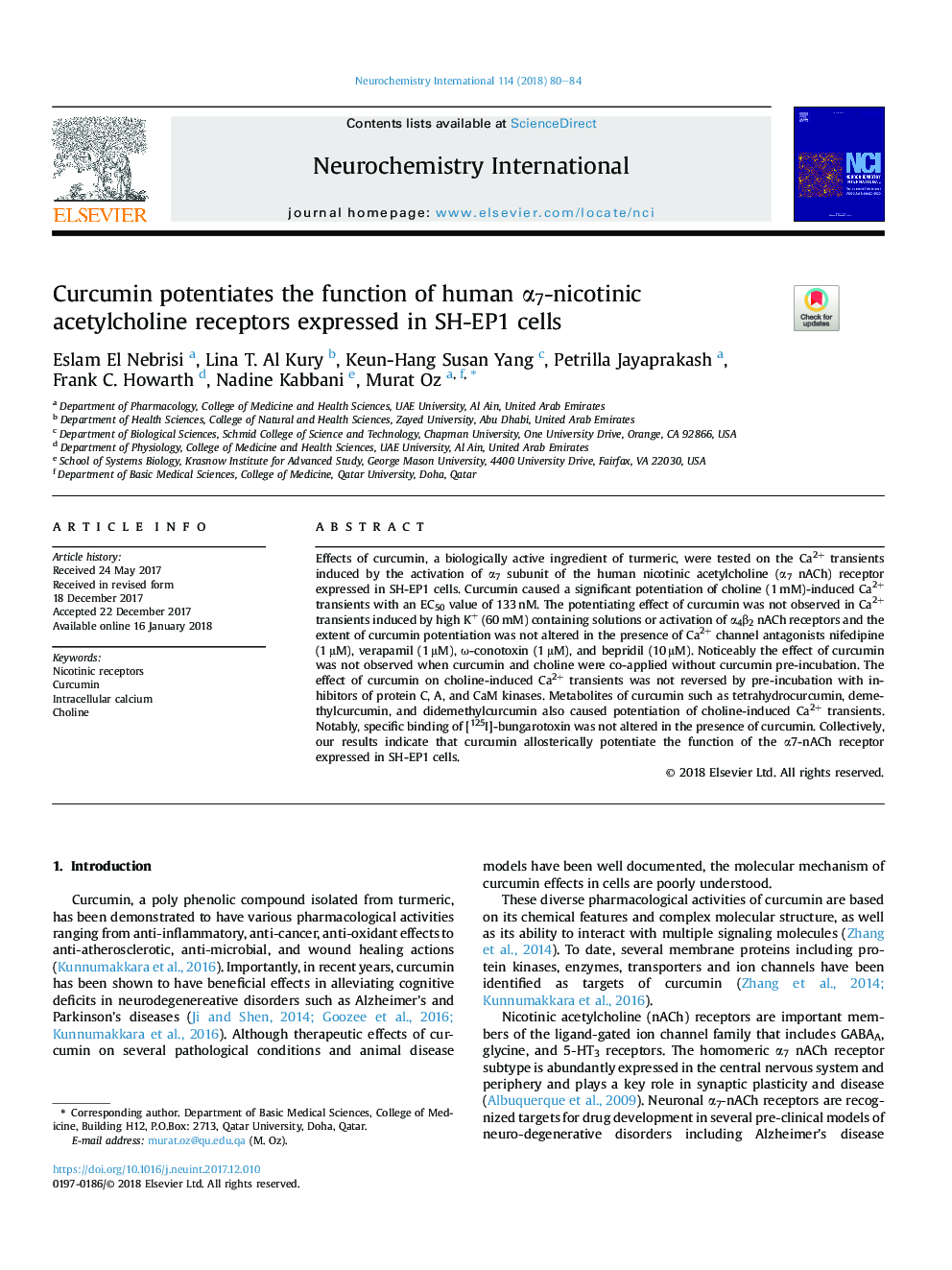| کد مقاله | کد نشریه | سال انتشار | مقاله انگلیسی | نسخه تمام متن |
|---|---|---|---|---|
| 8478963 | 1551261 | 2018 | 5 صفحه PDF | دانلود رایگان |
عنوان انگلیسی مقاله ISI
Curcumin potentiates the function of human α7-nicotinic acetylcholine receptors expressed in SH-EP1 cells
دانلود مقاله + سفارش ترجمه
دانلود مقاله ISI انگلیسی
رایگان برای ایرانیان
کلمات کلیدی
موضوعات مرتبط
علوم زیستی و بیوفناوری
بیوشیمی، ژنتیک و زیست شناسی مولکولی
بیولوژی سلول
پیش نمایش صفحه اول مقاله

چکیده انگلیسی
Effects of curcumin, a biologically active ingredient of turmeric, were tested on the Ca2+ transients induced by the activation of α7 subunit of the human nicotinic acetylcholine (α7 nACh) receptor expressed in SH-EP1 cells. Curcumin caused a significant potentiation of choline (1â¯mM)-induced Ca2+ transients with an EC50 value of 133â¯nM. The potentiating effect of curcumin was not observed in Ca2+ transients induced by high K+ (60â¯mM) containing solutions or activation of α4β2 nACh receptors and the extent of curcumin potentiation was not altered in the presence of Ca2+ channel antagonists nifedipine (1â¯Î¼M), verapamil (1â¯Î¼M), Ï-conotoxin (1â¯Î¼M), and bepridil (10â¯Î¼M). Noticeably the effect of curcumin was not observed when curcumin and choline were co-applied without curcumin pre-incubation. The effect of curcumin on choline-induced Ca2+ transients was not reversed by pre-incubation with inhibitors of protein C, A, and CaM kinases. Metabolites of curcumin such as tetrahydrocurcumin, demethylcurcumin, and didemethylcurcumin also caused potentiation of choline-induced Ca2+ transients. Notably, specific binding of [125I]-bungarotoxin was not altered in the presence of curcumin. Collectively, our results indicate that curcumin allosterically potentiate the function of the α7-nACh receptor expressed in SH-EP1 cells.
ناشر
Database: Elsevier - ScienceDirect (ساینس دایرکت)
Journal: Neurochemistry International - Volume 114, March 2018, Pages 80-84
Journal: Neurochemistry International - Volume 114, March 2018, Pages 80-84
نویسندگان
Eslam El Nebrisi, Lina T. Al Kury, Keun-Hang Susan Yang, Petrilla Jayaprakash, Frank C. Howarth, Nadine Kabbani, Murat Oz,